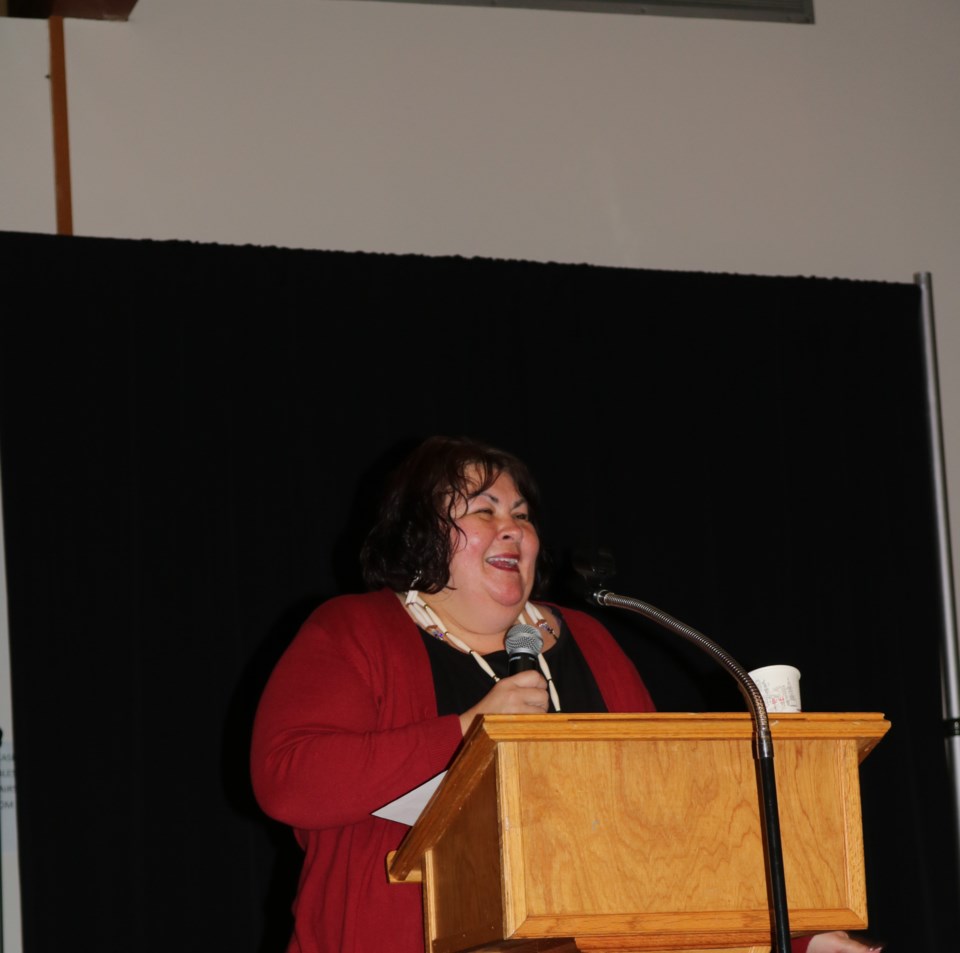YORKTON - People must learn to treat each other better.
That is a critical step in the healing process for those impacted by Indian Residential School trauma offered Mary Musqua-Culbertson speaking at a gathering in Yorkton Thursday.
“We don’t have an inherent right to treat each other badly,” said the former Treaty Commissioner of Saskatchewan, and a member of the Keeseekoose First Nation.
Musqua-Culbertson said in her former role – she was appointed in January 2018 becoming the first woman Treaty Commissioner of Saskatchewan – she learned first hand that there is a lack of respect out there including within the First Nation’s community.
The situation left her wondering “how we learned to be mean to each other?” she said.
The situation extends to personal relationships too, offered Musqua-Culbertson at the ‘Indian Residential School Gathering’ hosted by the Yorkton Tribal Council in the city.
She said the question of “how we can’t say I love you sometimes?” is one which not only needs to be asked, but also changes so it is acceptable to do it.
It’s not as simple as some suggest in saying First Nations people should just get over it though, noted Musqua-Culbertson.
“They don’t understand. They haven’t been in our communities,” she said.
The trauma of Indian Residential Schools is still very real, said Musqua-Culbertson, adding it is seen in the high levels of addiction among First Nations people, and that ripples through communities.
“We’re all touched by addiction . . . We have those struggles in our communities and in our homes,” she said.
Too often in coming out of residential schools the traumas manifested is an inability to express love, and now “we’re passing it (the inability) to the next generation,” continued Musqua-Culbertson.
If the issues are not dealt with Musqua-Culbertson said she feared for the future.
“What are we going to be left with?” she asked.
But to deal with the issues there needs to be a collective effort, with all in a community working together, which Musqua-Culbertson said is not often the case at present. Too often some are only focused on power, cheques and greed, she added.
“We should be standing behind each other all the time,” she said.
The first step is to respect and love, offered Musqua-Culbertson.
“When we treat each other good it’s reflected in our communities,” she said.
Musqua-Culbertson said the ability to express love needs to be learned again as it was lost by many because of residential school experiences.
“Normalizing saying ‘I love you” was one step I took . . . My little first step,” said Musqua-Culbertson.






